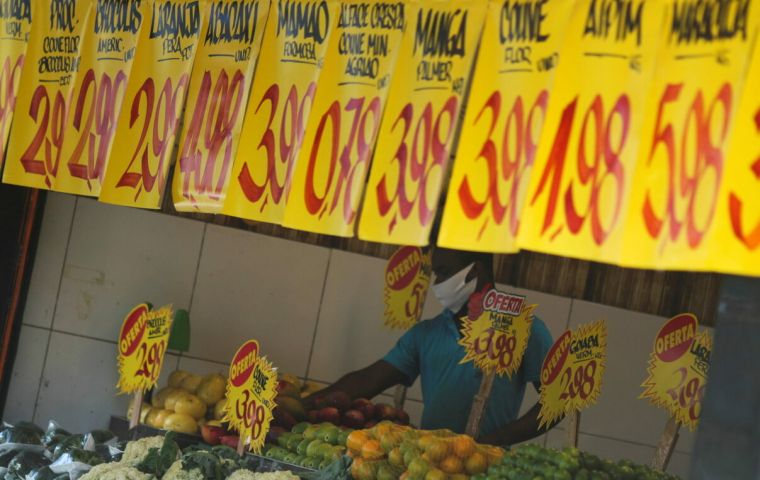MercoPress. South Atlantic News Agency
Brazil 12 month inflation in November at an eighteen year record of 10,74%
 Insufficient rainfall has left level of dams' reservoirs half empty, forcing the generation of power with fuel and electricity bills up almost 50% so far this year
Insufficient rainfall has left level of dams' reservoirs half empty, forcing the generation of power with fuel and electricity bills up almost 50% so far this year Brazil's November inflation reached the highest in eighteen years, 10,74%, almost three times this year's central bank target (3,75%), but the rising trend seems to be flattening, according to the national stats office.
In effect prices rose 0,95% over October when the index was 1,25%, and were also below market expectations, 1,03%. The aggressive tightening interest rate policy of the Central bank, with Selic currently at 9,15%, highest since 2017, apparently is beginning to have an effect, although prices of fuel, power, transport and housing continue very bullish.
A prolonged drought, insufficient rainfall has left the level of dams' reservoirs half empty, forcing the generation of power with fuel with electricity bills up almost 50% so far this year. On the bright side food prices have eased despite worldwide agriculture commodities have been rising, although the Brazilian economy is not performing as expected having contracted 0,4% in the second quarter .
The new inflation figures “provide a crumb of comfort that the headline rate is stabilizing a bit earlier than had been widely anticipated,” economist William Jackson of consulting firm Capital Economics said in a note. But “it won't deter them from hiking the Selic rate by another 150 basis points in February.”
Brazil is holding elections next year, and there is a major battle going on, on the one side agriculture, one of the most modern and efficient in the world which insists in open markets for inputs, and the traditional manufacturing sector, which is demanding protection and loathes any tariff reduction.




Top Comments
Disclaimer & comment rulesCommenting for this story is now closed.
If you have a Facebook account, become a fan and comment on our Facebook Page!